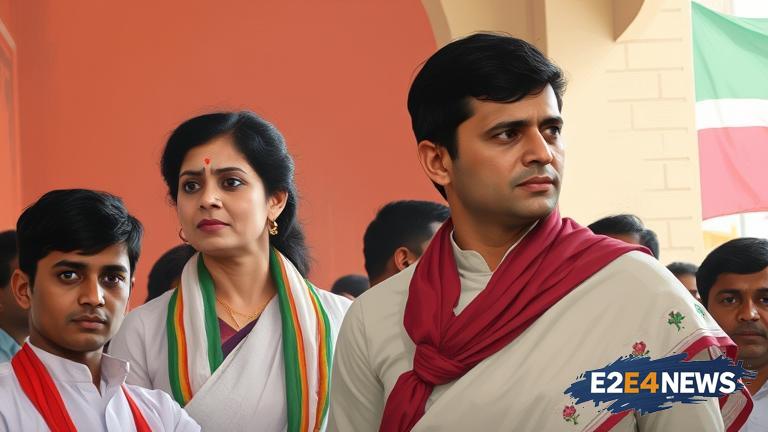In a recent turn of events, Priyanka Gandhi has come to the defense of her brother Rahul Gandhi after his controversial remark about the Supreme Court. The remark, which sparked a heated debate, has been criticized by many, with some even questioning Rahul Gandhi’s patriotism. However, Priyanka Gandhi has stood by her brother, stating that judges cannot decide who is a true Indian. She emphasized that being a true Indian is not about one’s birthplace or ancestry, but about their values and actions. The controversy began when Rahul Gandhi made a statement about the Supreme Court’s decision on a particular case, which was perceived as an attack on the judiciary. The statement was met with widespread criticism, with many accusing Rahul Gandhi of being anti-national. However, Priyanka Gandhi has argued that her brother’s statement was taken out of context and that he was simply exercising his right to free speech. She also pointed out that the Supreme Court is not above criticism and that it is the duty of citizens to hold the judiciary accountable. The debate has sparked a wider discussion about the role of the judiciary in Indian society and the limits of free speech. Many have argued that the judiciary should be respected and that criticism of the Supreme Court is unacceptable. However, others have countered that the judiciary is not infallible and that criticism is necessary to ensure that it remains accountable. The controversy has also highlighted the ongoing tensions between the government and the opposition, with many accusing the government of trying to silence dissenting voices. Priyanka Gandhi’s defense of her brother has been seen as a bold move, with many praising her for standing up for what she believes in. However, others have criticized her for defending a statement that they perceive as anti-national. The debate is likely to continue, with many calling for greater clarity on the issue. In the meantime, Priyanka Gandhi’s statement has sparked a wider discussion about what it means to be a true Indian. Is it about one’s birthplace or ancestry, or is it about one’s values and actions? The answer to this question is complex and multifaceted, and it is likely to continue to be debated in the days and weeks to come. As the controversy continues to unfold, one thing is clear: the issue of what it means to be a true Indian is a complex and sensitive one, and it requires careful consideration and nuance. The Supreme Court’s decision has been widely criticized, with many arguing that it has undermined the principles of democracy and free speech. However, others have argued that the decision was necessary to maintain law and order. The controversy has also highlighted the importance of a free and independent press, which is essential for holding those in power accountable. In the end, the debate surrounding Rahul Gandhi’s remark is a reminder that the issue of what it means to be a true Indian is a complex and multifaceted one, and it requires careful consideration and nuance. It is also a reminder that the principles of democracy and free speech are essential for a healthy and functioning society. As the controversy continues to unfold, it is likely that we will see further developments and debates on this issue. The government has been criticized for its handling of the situation, with many arguing that it has failed to address the underlying issues. However, others have argued that the government has taken a necessary step to maintain law and order. The opposition has been vocal in its criticism of the government, with many arguing that it has undermined the principles of democracy and free speech. The controversy has also sparked a wider discussion about the role of the judiciary in Indian society, with many arguing that it is essential for holding those in power accountable. In conclusion, the controversy surrounding Rahul Gandhi’s remark is a complex and multifaceted one, and it requires careful consideration and nuance. It is a reminder that the principles of democracy and free speech are essential for a healthy and functioning society, and that the issue of what it means to be a true Indian is a complex and sensitive one.





